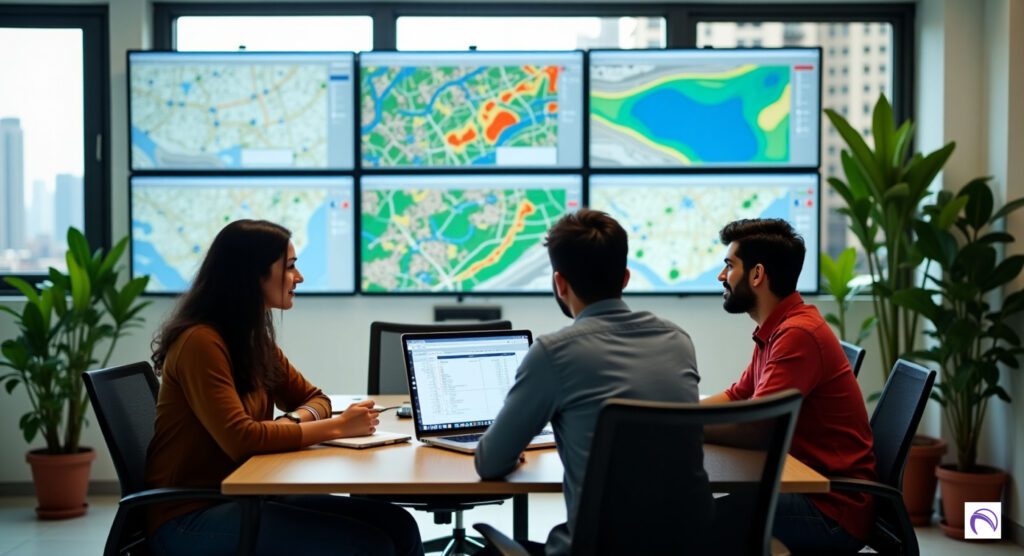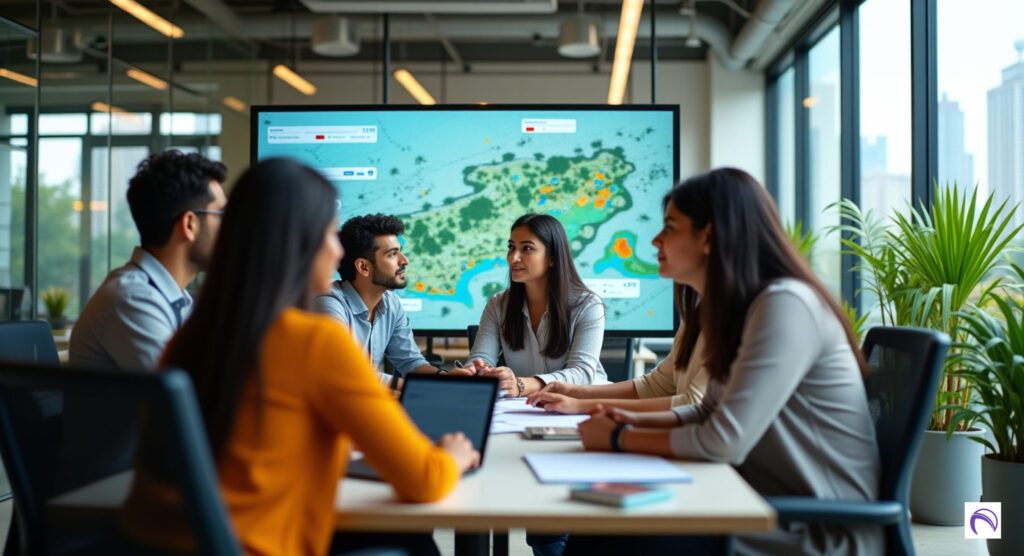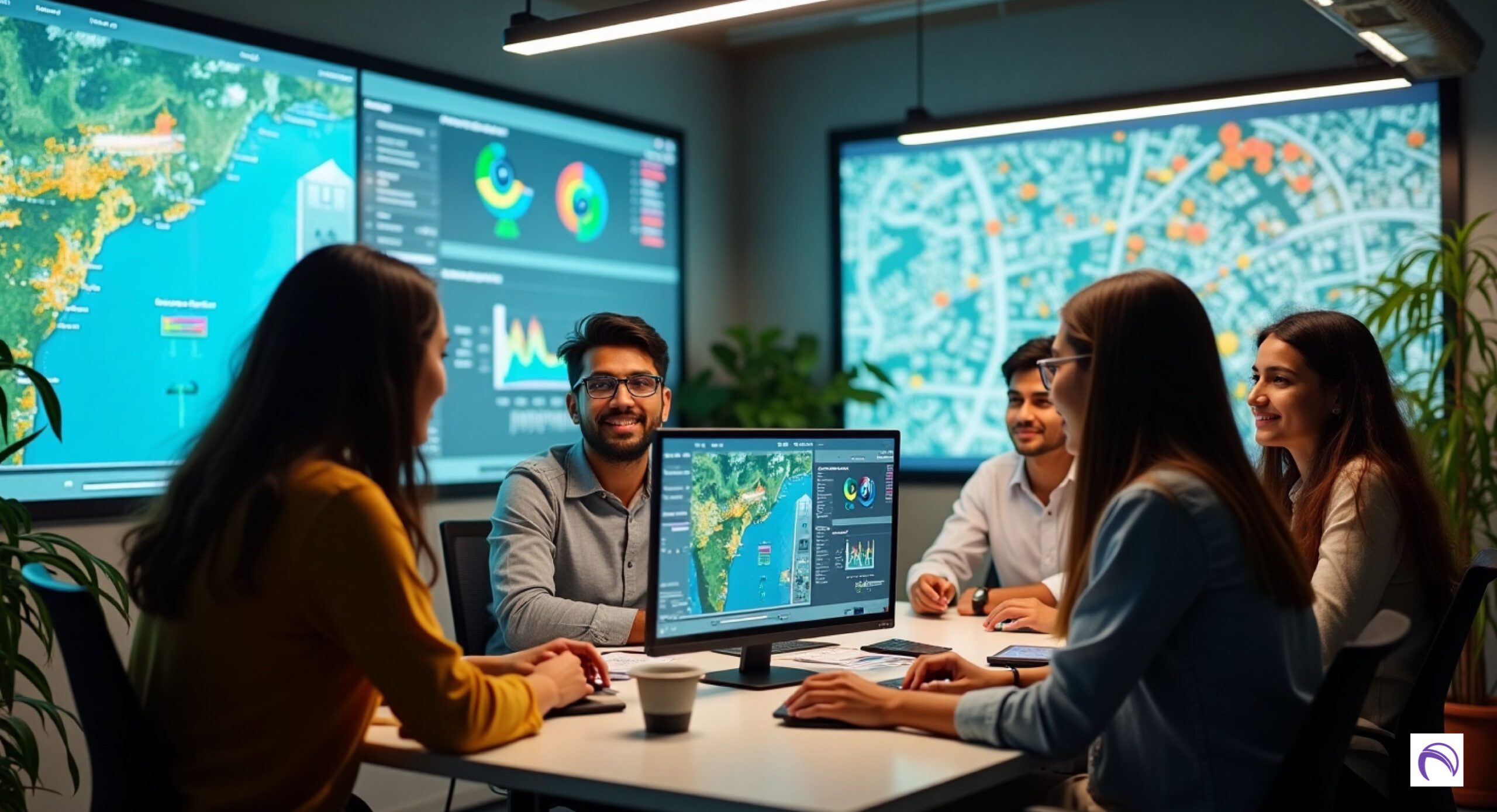In 2025, AI for sustainable urban planning is transforming India’s $150 billion urban development market, creating eco-friendly, efficient cities for a rapidly growing population. With 60.4% of India’s 1.4 billion people digitally connected and 63 million MSMEs driving sustainable innovations, AI resonates with 70% of urban planners and citizens prioritizing green infrastructure. Supporting India’s 100+ smart cities and a $1 trillion digital economy, AI aligns with a 15% CAGR in smart city technologies and 40% renewable energy goals through data-driven urban solutions.
Why AI for Sustainable Urban Planning Matters in 2025

AI optimizes urban planning by analyzing vast datasets, reducing resource waste by 20% and enhancing infrastructure efficiency by 25%. With 500 million social media users sharing smart city trends and 50% of UPI transactions funding green urban solutions, AI powers India’s 100+ smart cities, from Delhi’s congested roads to Bengaluru’s tech-driven hubs. Costing ₹1 crore to ₹100 crore for city-scale projects, AI serves 60.4% of digital urbanites, tackling challenges like pollution and urban sprawl. By leveraging AI, India fosters sustainable cities that balance growth with environmental responsibility.
As an urban planning and AI expert, I’ve worked on smart city projects across India. This guide explores seven key AI innovations for sustainable urban planning in 2025, offering insights to build greener, smarter cities.
AI Innovations for Sustainable Urban Planning
1. AI-Driven Traffic Management
AI analyzes real-time traffic data to optimize signals, cutting congestion by 20%. In Delhi, 60% of smart cities use AI for eco-friendly traffic flow. siemens.com
2. Geospatial Planning Optimization
AI maps land use and population patterns, improving planning accuracy by 25%. In Bengaluru, 30% of infrastructure projects leverage AI for sustainable layouts. esri.com
3. Smart Waste Management Systems
AI-powered sensors optimize waste collection, reducing fuel use by 15%. In Chennai, 50% of municipal systems adopt AI for greener waste management. sensoneo.com
4. Predictive Flood Modeling

AI predicts flood risks with 90% accuracy, saving 20% in recovery costs. Mumbai uses AI models to enhance monsoon preparedness. arcgis.com
5. Energy-Efficient Smart Grids
AI optimizes energy distribution, cutting losses by 15%. In Hyderabad, 40% of grids use AI to support 40% renewable energy goals. schneider-electric.com
6. Urban Heat Island Mitigation
AI identifies heat-prone zones, guiding green space planning to lower temperatures by 2°C. In Pune, 25% of greening projects rely on AI. nasa.gov
7. AI-Enhanced Public Safety
AI analyzes crime and traffic patterns, improving response times by 20%. In Ahmedabad, 50% of surveillance systems use AI for safer urban spaces. hikvision.com
AI Innovations for Sustainable Urban Planning Table 2025
| Innovation | Cost (₹) | Key Benefits | Impact in India |
|---|---|---|---|
| AI-Driven Traffic Management | 1 crore–50 crore | Reduces congestion by 20% | 60% smart cities adopt (Delhi) |
| Geospatial Planning Optimization | 2 crore–100 crore | Improves planning accuracy by 25% | 30% projects use (Bengaluru) |
| Smart Waste Management | 50 lakh–10 crore | Cuts fuel use by 15% | 50% municipal adoption (Chennai) |
| Predictive Flood Modeling | 1 crore–20 crore | Saves 20% in recovery costs | Enhances Mumbai monsoon plans |
| Energy-Efficient Smart Grids | 5 crore–50 crore | Reduces energy losses by 15% | 40% grids adopt (Hyderabad) |
| Urban Heat Island Mitigation | 1 crore–30 crore | Lowers temperatures by 2°C | 25% greening projects (Pune) |
| AI-Enhanced Public Safety | 2 crore–20 crore | Improves response times by 20% | 50% surveillance use (Ahmedabad) |
Applications of AI in Sustainable Urban Planning
- Efficiency: Saves 15–25% in resource use for 60.4% digital urbanites.
- Sustainability: Supports 3,500 IGBC-certified green projects with data-driven planning.
- Smart Cities: Enhances infrastructure in 100+ smart cities, boosting connectivity.
- MSMEs: Empowers 63 million businesses with sustainable urban solutions.
- Content Creation: Fuels smart city discussions for 500 million social media users.
Benefits of AI in Sustainable Urban Planning
- Cost Savings: Reduces infrastructure costs by 15–20%.
- Sustainability: Aligns with 40% renewable energy goals via efficient systems.
- Scalability: Suits small towns to megacities, adopted by 60% of smart cities.
- Quality of Life: Improves urban living for 60.4% digital residents.





